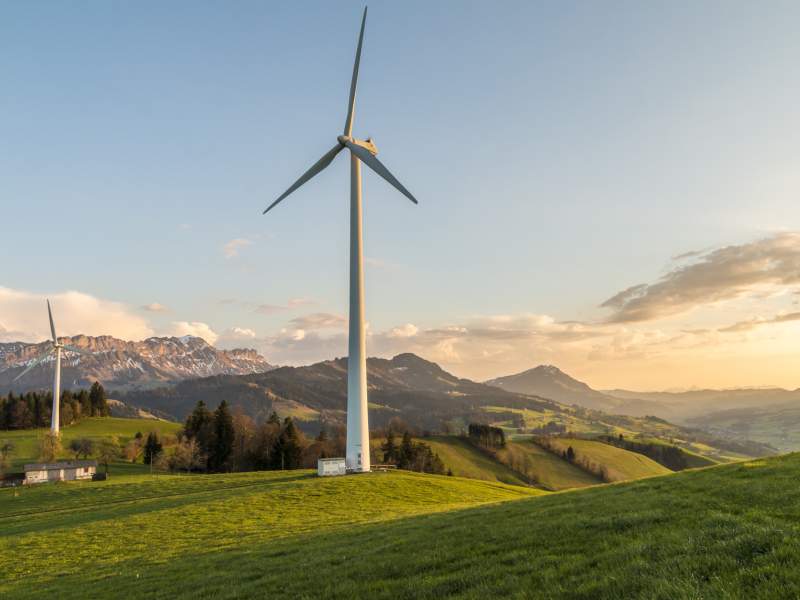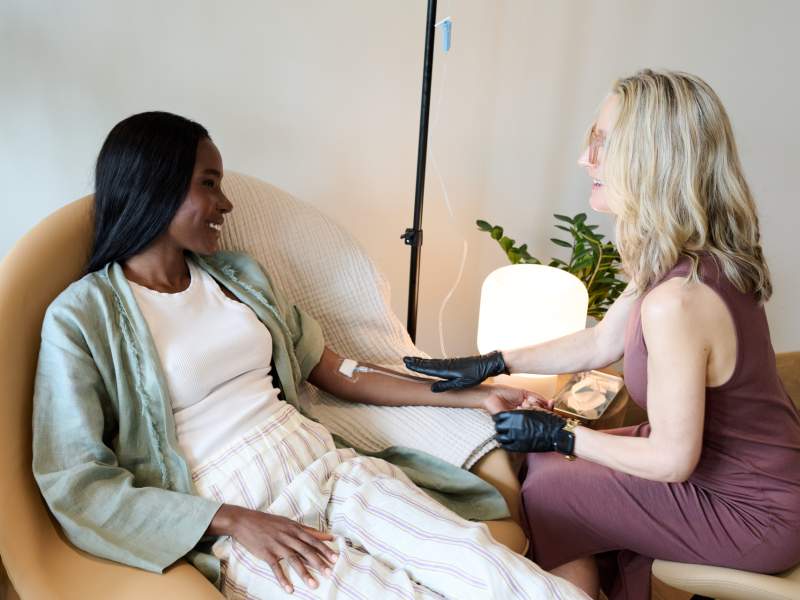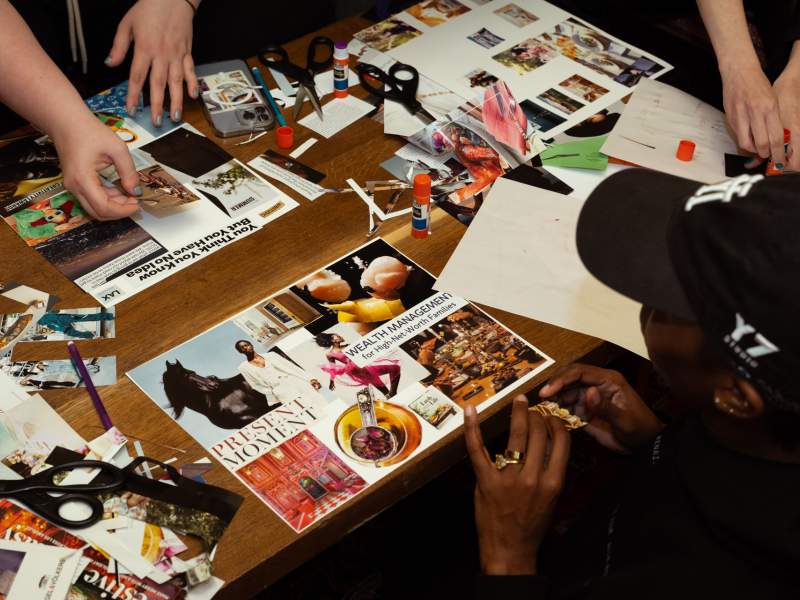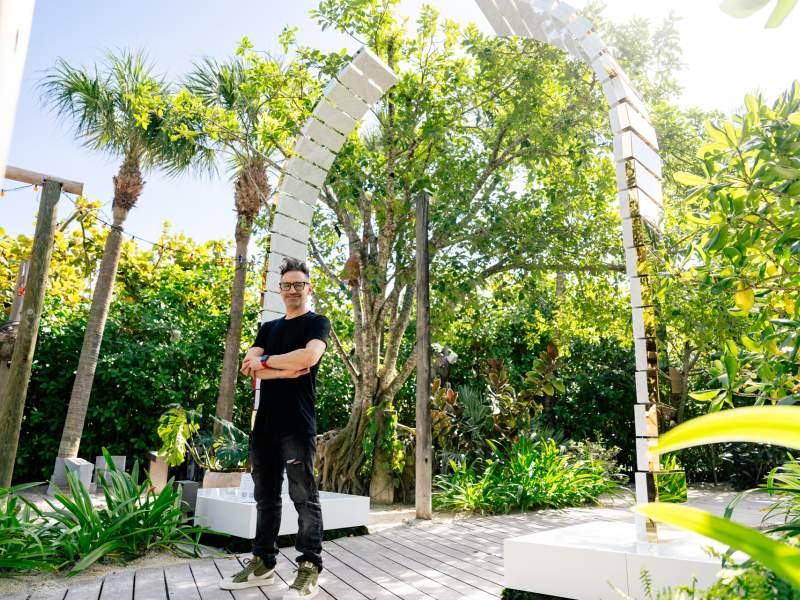Celebrating the Incredible Impacts That Can Unfold in Just One Year as an E2 Fellow
This year marks the fifth anniversary of the 1 Hotels Fellowship at E2. We’re thrilled to introduce the 2023 fellows and their projects—and reflect on some of the incredible progress made in the last year.

We’re celebrating the fifth year of the 1 Hotels Fellowship at E2, our annual program with NRDC’s Environmental Entrepreneurs that awards six young business leaders $20,000 each to execute projects centered around sustainability, clean energy, and environmental policies across the country. We’re excited to announce the 2023 fellowship recipients and their innovative projects.
• Autumn Burton from Durham, NC is creating a clean energy toolkit that provides alternative policies and practices that consciously consider and address environmental justice implications in renewable energy.
• Maya Whalen-Kipp from Washington, DC is building equitable, climate-centric opportunity pathways for the next generation of the clean-tech workforce.
• Sana Mahmood from Chicago, IL is creating a business playbook in the hotel and lodging sector to reduce carbon emissions in furniture and equipment.
• Stefan Johnson from Carbondale, CO is developing and implementing educational outreach to help ski resorts rapidly electricity their fleets.
• Uriel Lopez from Bronx, NY is creating the Green Jobs Collective (GJC), a virtual resource center that helps match individuals in the US with clean economy jobs in NYC.
• Vivian Tai from New York, NY is curating an interactive map of sustainable farms to optimize localized supply chains, democratizing access to sustainable food sources and regenerative farms to connect communities and empower people to eat local.
As we build excitement for all of the amazing progress to come, we can’t help but take the time to reflect on one of the 2022 E2 projects led by fellow Marlene Plua. Marlene’s project set out to break the language barrier in the world of renewable energy through a bilingual clean energy curriculum for small business owners and community health workers in the Rio Grande Valley.
In January 2023, Marlene reached the second phase of her project, kicking off a workshop for 24 community members. By the end of the year, each organization involved in the workshop will give two trainings to their respective communities—extending the reach of the curriculum and addressing injustices Indigenous Peoples face at the intersection of immigration, health, labor, infrastructure, and climate.
We sat down with Marlene to discuss the headway she’s made, the challenges she’s encountered, and her exciting path forward.
2022 E2 Fellow, Marlene Plua, Celebrates Her Progress and the Path Forward
We last spoke to you in October 2021 at the beginning of your fellowship. You spoke to us about what inspired you to create a bilingual clean energy curriculum for frontline communities in the Rio Grande Valley, as well as how the fellowship would help you execute your project. A year later, we’re so excited to follow up with you regarding the outcome and impacts of your project. Can you give us a topline recap of your project – any big wins or moments that were most rewarding?
In 2022, six non-profit organizations based in Rio Grande Valley (RGV) worked together to develop the RGV From Crisis to Change Popular Education Curriculum, a 12-hour training program. The bilingual curriculum provides a critical intersection of the crises that they face – immigration, health, labor, infrastructure, and injustices against Indigenous Peoples – under the framework that challenges the systemic inequities that continue to sacrifice and extract their community and ways they can harness their power to advance climate justice solutions that create a safer and healthier Rio Grande Valley. The curriculum uses popular education methods of Paolo Friere and Augusto Boal. It includes instructions and popular education material that walks facilitators (trainers) through the process of leading the RGV From Crisis to Change training in their communities.
In January 2023, we entered the second stage of the project, an intensive three-day Training of Trainers (TOT) workshop where 24 community leaders were trained to be RGV From Crisis to Change facilitators. Each organization will give two trainings to their respective communities by the end of the year. Additional funding was secured to support the organizations to spread their skills and knowledge to low-income families, small business owners, and low-wage workers across the region. Through a network of trainers, the RGV From Crisis to Change will become a more sustainable and replicable training.
Can you talk to us about the work of the promotoras? Did you feel that they were able to foster deep relationships with community members and small business owners, as well as expand their clean energy knowledge?
Each section of the curriculum weaves a climate issue. For example, immigration focused on climate refugees and why they are being forced to migrate. In the housing section, the focus is to understand the existing housing and infrastructure issues and the need to build climate resilient communities. Community leaders expanded their knowledge on the climate and environmental issues that are impacting the region and recognized the ways that the region is a sacrifice zone. They also learned ways to strengthen climate justice organizing.
Furthermore, the trainers foster deeper relationships and connections with one another and gain facilitation skills to be confident facilitators that will allow them to make those personal connections in their community once they launch their training workshops this year.
What are some of the impacts your project has had on community members or small businesses?
This project provided a safe and open space for participants to come together to share their personal experiences, give emotional support, and offer solutions during this time of crisis that we are facing-climate change, whereas otherwise this might not be possible. Each organization is in rapid response mode, fighting against one crisis after another. Having the organizations come together and work collectively allowed them to explore the ways in which their work is interconnected, address the collective impact of climate change and how they envisioned change for their communities. But, most importantly, they are not alone in the fight for climate justice.
Have frontline workers become more involved in community engagement efforts?
The organizations that are in partnership with the program work with domestic workers, union workers, health workers, farmworkers, and immigrant day laborers. As the trainers gear to launch their training workshops, they will engage more frontline workers in the climate justice movement.
Is there anything else you’d like to share with us about your project?
If we are to shape the climate and clean energy future, we must ensure that frontline communities are resourced and given the tools to organize collectively to create a truly democratic society where they have equal access to the world’s resources. This is the purpose of popular education.












